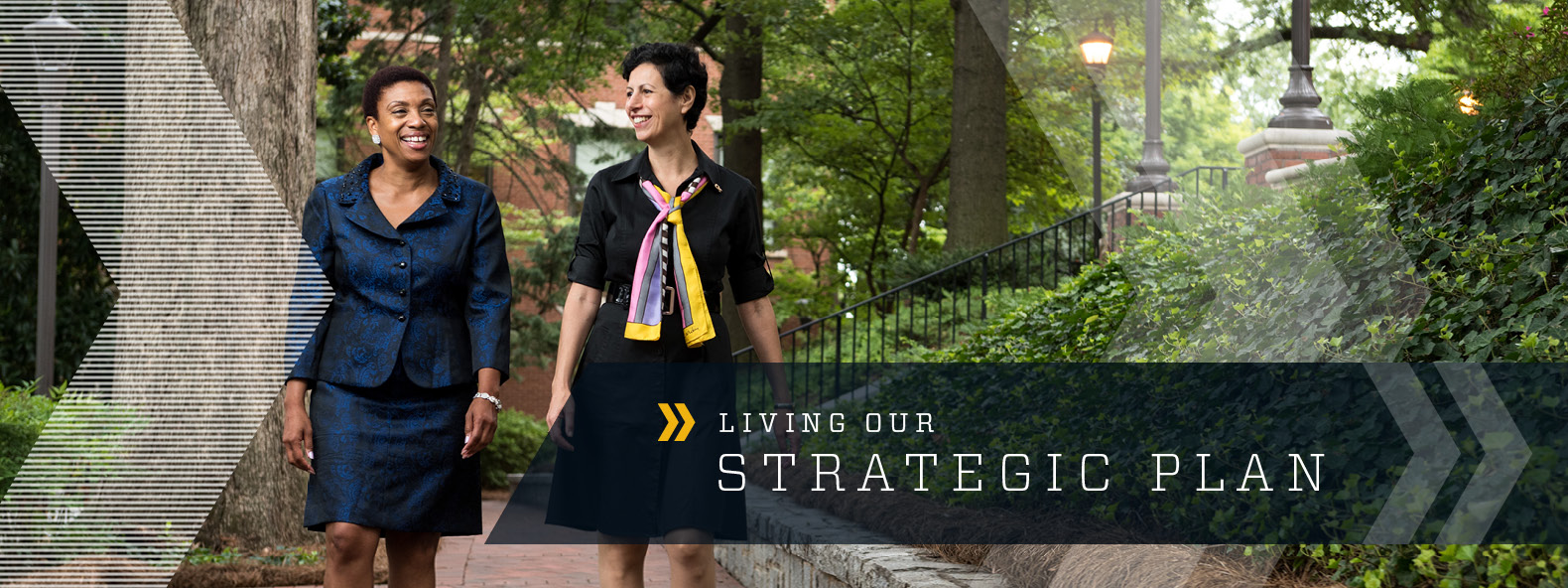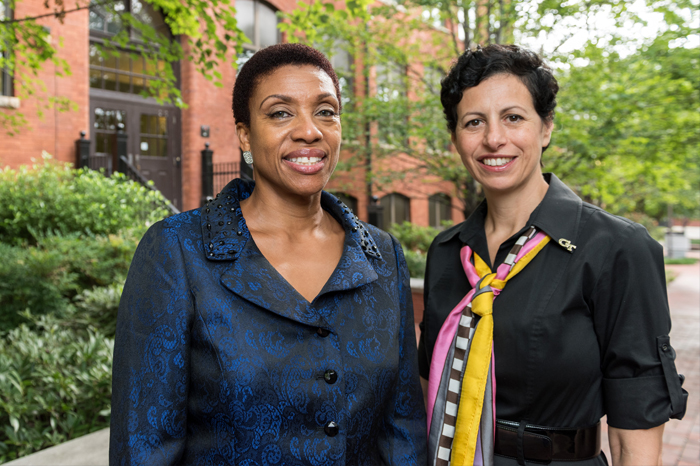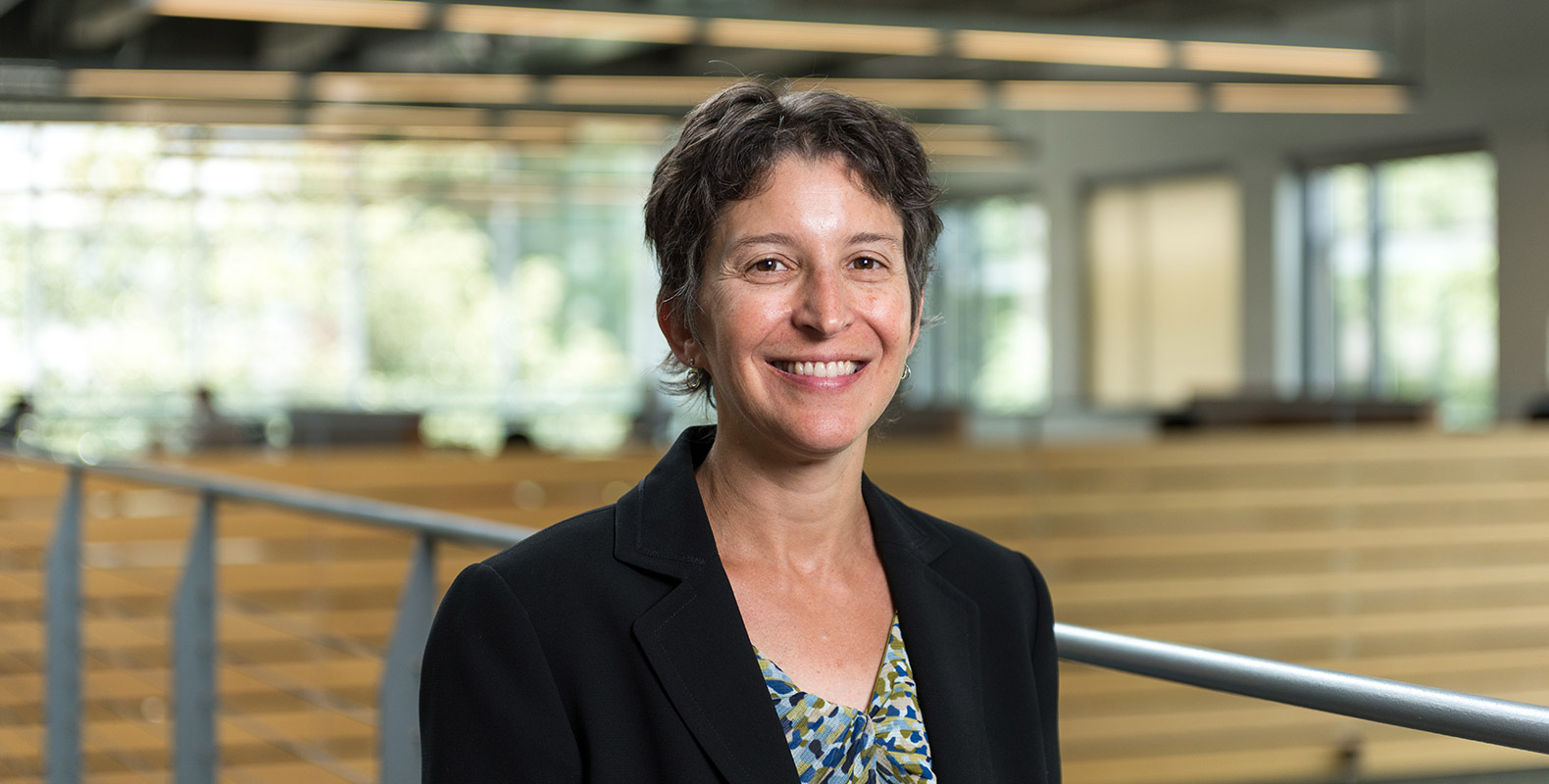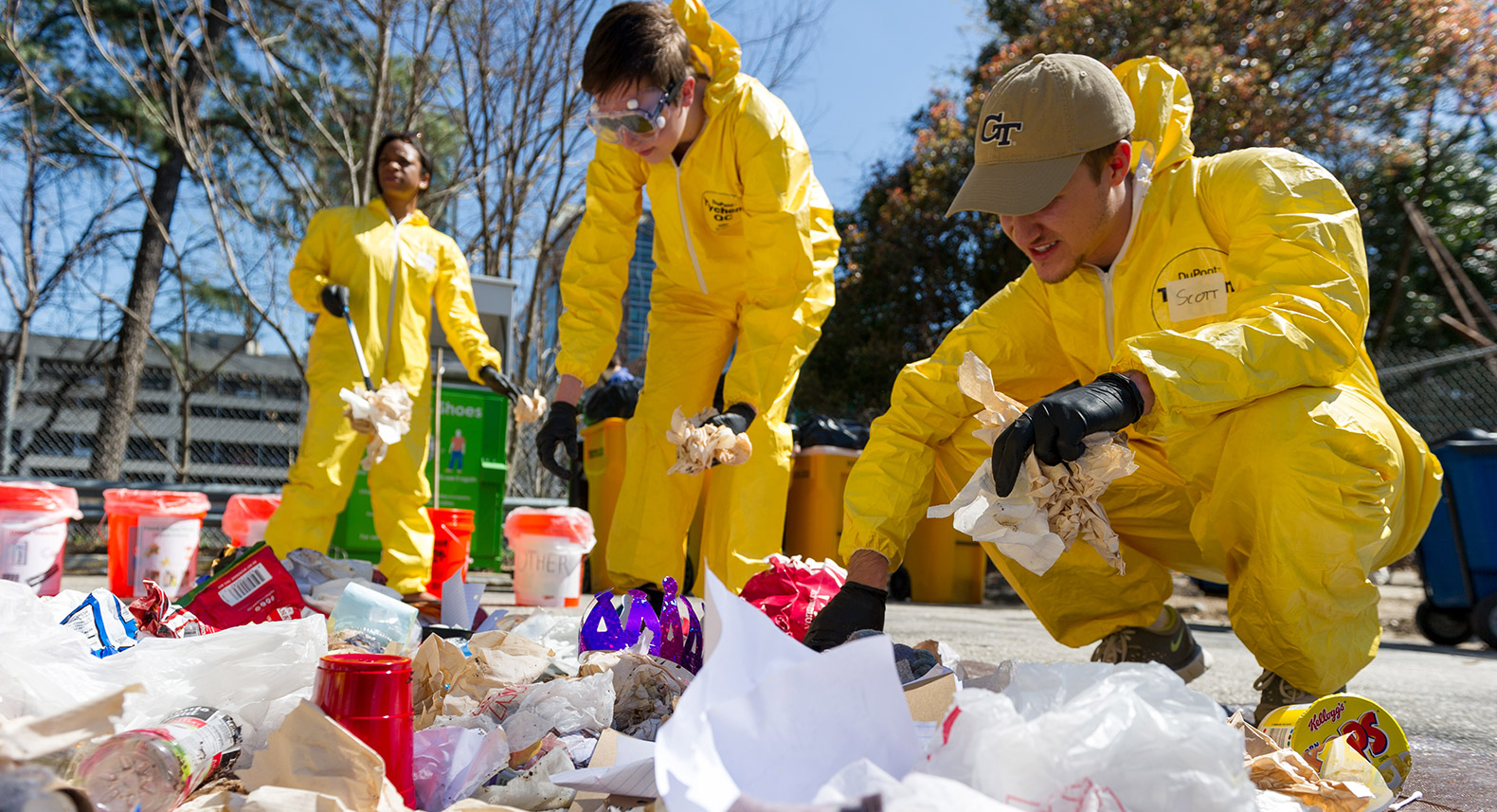
Annual Report Navigation
Living Our Strategic Plan
A critical guidepost in determining what’s next is our 25-year strategic plan, launched in 2010. Fiscal year 2016 saw significant progress toward realizing the plan’s goals.
Leading Women @ Tech

Pearl Alexander and Julie Ancis, co-leaders of Leading Women @ Tech
“The representation of diverse women among all levels of leadership is central to our ongoing success.”
Julie Ancis
Maximizing institutional effectiveness is a prominent goal of the strategic plan, and the launch of the Leading Women @ Tech Program directly addresses this aim. The goal of the new program is to create empowerment opportunities for women leaders and build a community of women who will advance a culture of inclusive excellence at Georgia Tech. Currently, only 28 percent of staff positions above director level at Georgia Tech are held by women.
“We are dedicated to creating the next community of leaders who will guide Tech in the 21st century. The representation of diverse women among all levels of leadership is central to our ongoing success,” said Julie Ancis, associate vice president of Institute Diversity. “The vision of Leading Women @ Tech aligns with Tech’s commitment to an inclusive campus environment, as outlined in our strategic plan.”
Co-led by Ancis and Pearl Alexander, executive director of Institute Diversity’s Staff Diversity, Inclusion, and Engagement unit, Leading Women @ Tech is designed to strengthen leadership ability, enhance personal and professional growth, and support participants’ overall career development.
“Organizations worldwide are taking steps to develop, deploy, and measure effective leadership strategies as a competitive advantage,” Alexander said. “Fostering and leveraging the talents of our women leaders at Tech enables them to thrive in their current roles. This prepares them to achieve advancement in ways that are fulfilling throughout various stages of their careers.”
Jennifer Hirsch Leads New Sustainable Communities Center
To implement Georgia Tech’s new quality enhancement plan (QEP) for student learning, Serve-Learn-Sustain, the Institute established a new unit within the Office of Undergraduate Education and welcomed its inaugural director, Jennifer Hirsch, Ph.D.

The Center for Serve-Learn-Sustain is co-located with the Center for Academic Enrichment in Clough Commons.
An applied cultural anthropologist specializing in sustainable communities, Hirsch has worked at Northwestern University, The Field Museum, and most recently as an independent consultant. Over the past eight years, she has focused on bringing together diverse populations, including students, administrators, faculty, policymakers, and community leaders, to build on local assets to address community sustainability challenges. She also has experience in higher education administration, focusing on international and experiential education.
“I couldn’t be more excited about moving to Atlanta and Georgia Tech to launch Serve-Learn-Sustain,” Hirsch said. “This innovative initiative is destined to become a national model for university engagement in sustainability, as an environmental, social, and economic imperative. It is an honor to be involved from the very beginning.”
Serve-Learn-Sustain Examines Community Concept
The Center for Serve-Learn-Sustain hosted the Liam’s Legacy Symposium last fall to address the question of what sustainability might look like if the concept of community is taken seriously. The asset-based community engagement model encourages change and development by using the talents and capacities of people within the community. It also focuses on a community’s strengths and not just its needs.

Working with the Office of Campus Sustainability, students from various public policy and economics classes developed and implemented a sample waste audit whose goal is to evaluate and weigh the types of waste in campus trash and recycling bins to improve waste diversion programs. The Center for Serve-Learn-Sustain funded a grant to support the project. After examining samples from Clough Commons and various freshman residence halls, the students found that food waste constituted a significant proportion of trash in both locations. One recommendation that emerged from the project was to increase the ratio of recycling bins to trash bins.
“The Liam’s Legacy Symposium is a wonderful opportunity to join the conversation regarding how Georgia Tech approaches sustainability,” said Kristina Chatfield, program manager with the Center for Serve-Learn-Sustain. “We are engaging community partners at and around Georgia Tech, as we continue to develop programs for the students’ academic experience.”
The event included keynote remarks by Jody Kretzman, one of the co-founders of the Asset-Based Community Development Institute at Northwestern University, and Jenita McGowan, the chief sustainability officer for the City of Cleveland.
Liam’s Legacy celebrates the life and legacy of Liam Rattray, a sustainability activist who had just graduated from Georgia Tech with a degree in public policy when he was killed by a suspected drunk driver in 2011.
What's next? ![]() Fostering Student Ingenuity and Success
Fostering Student Ingenuity and Success